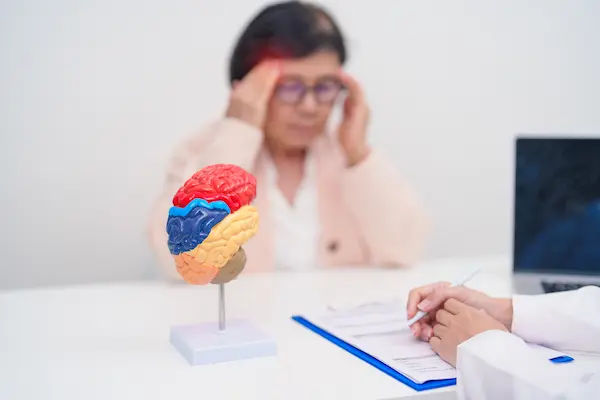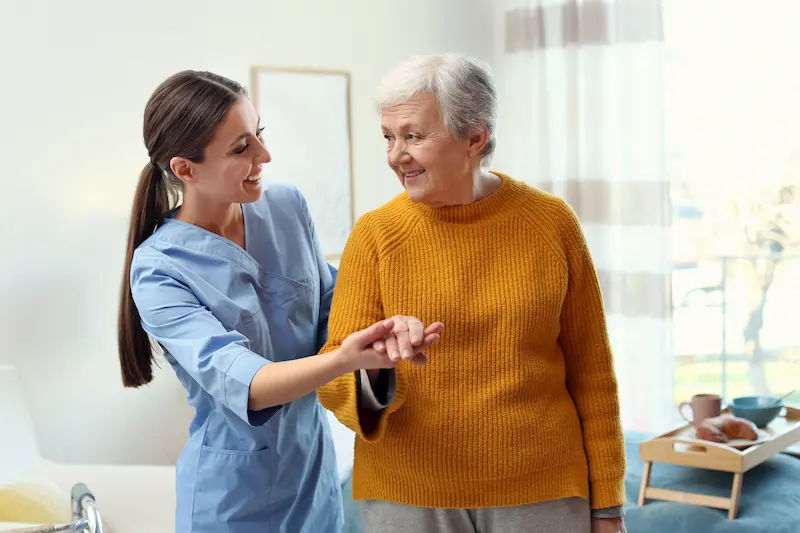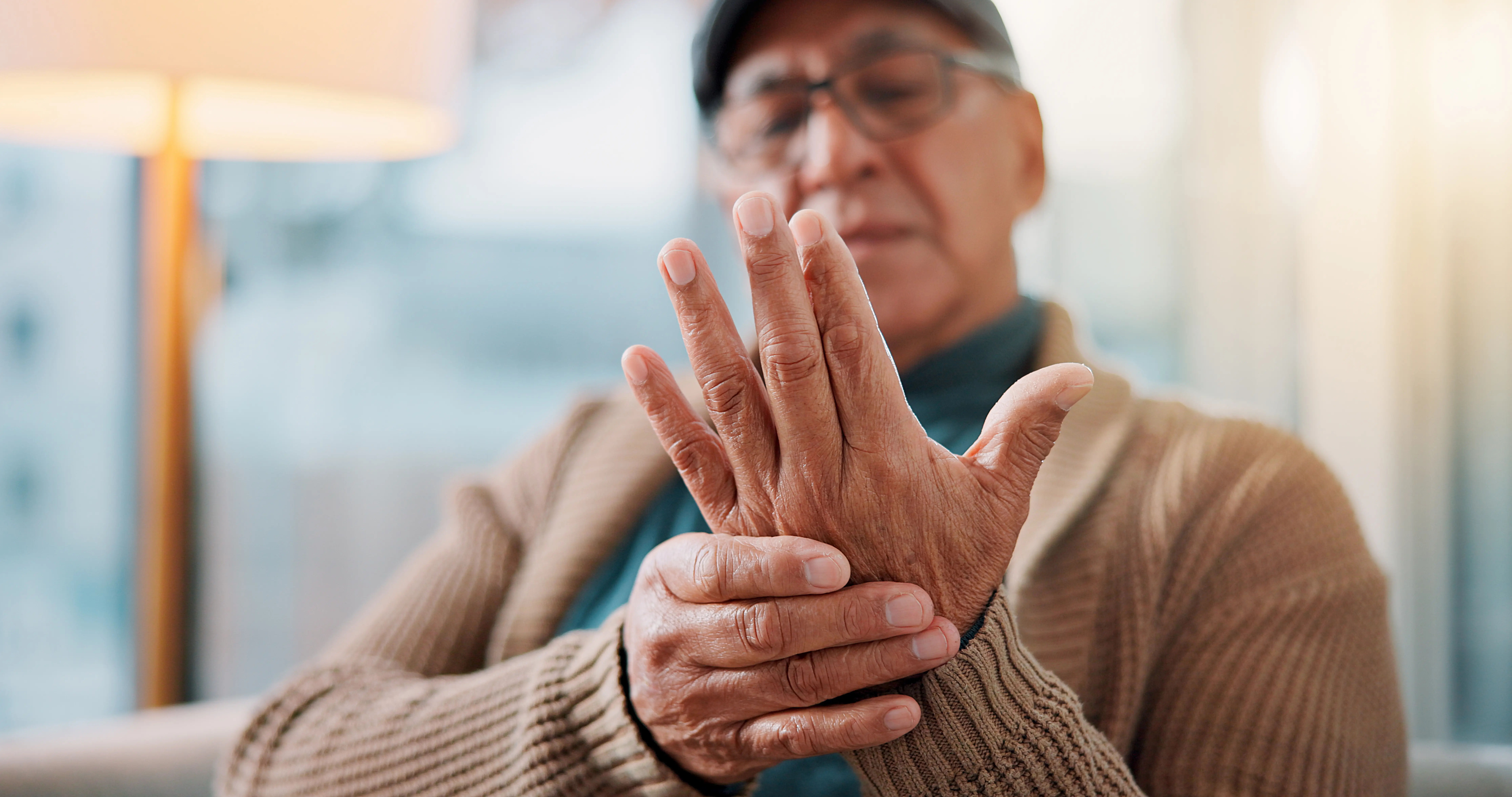Understanding Parkinson's Symptoms
Discover the key symptoms of Parkinson's disease, including tremors, stiffness, and movement difficulties. Learn how to recognize early signs and understand the progression of this neurological condition.

Written by Dr. J T Hema Pratima
Reviewed by Dr. Rohinipriyanka Pondugula MBBS
Last updated on 13th Jan, 2026

Introduction
Parkinson’s disease is a neurological condition that affects movement and can impact daily life. While it’s often associated with tremors, there’s much more to it. If you or a loved one is experiencing symptoms, understanding them can help in managing the condition better. Let’s break it down in simple terms.
What is Parkinson’s Disease?
Parkinson’s disease occurs when certain nerve cells (neurons) in the brain gradually break down or die. These neurons produce dopamine, a chemical that helps control movement. When dopamine levels drop, it leads to movement-related symptoms like tremors, stiffness, and slow movements.
Consult Top Specialists for Personalised Tips
Common Symptoms of Parkinson’s
Parkinson’s symptoms vary from person to person, but they generally fall into two categories: motor (movement-related) symptoms and non-motor symptoms.
1. Motor Symptoms
Tremors – Shaking usually begins in the hands or fingers, often described as a "pill-rolling" tremor (like rolling a small object between thumb and fingers).
Bradykinesia (Slowed Movement) – Simple tasks like buttoning a shirt or walking may take longer.
Muscle Stiffness – Arms, legs, or neck may feel rigid, making movement difficult.
Postural Instability – Balance problems may lead to frequent falls.
Shuffling Walk – Steps may become shorter, and feet may drag while walking.
2. Non-Motor Symptoms
Parkinson’s doesn’t just affect movement. Many people also experience:
Loss of Smell (Anosmia) – Difficulty detecting odors.
Sleep Problems – Insomnia, restless legs, or acting out dreams (REM sleep disorder).
Mood Changes – Depression, anxiety, or irritability.
Cognitive Changes – Trouble with memory or focus (especially in later stages).
Constipation & Digestive Issues – A common early sign.
Soft or Monotone Speech – Voice may become quieter or less expressive.
What Causes Parkinson’s?
The exact cause is still unknown, but researchers believe a mix of genetics and environmental factors (like exposure to toxins) may play a role. Age is also a factor most people develop symptoms after 60, though early-onset Parkinson’s can occur before 50.
How Does Parkinson’s Affect Daily Life?
Living with Parkinson’s can be challenging, but many people lead fulfilling lives with the right care. Symptoms progress slowly, and treatment can help manage them. Some common challenges include:
Difficulty with Daily Tasks – Writing, eating, or dressing may become harder.
Fatigue – Low energy levels make activities exhausting.
Speech & Swallowing Issues – Some people develop a softer voice or trouble swallowing.
Emotional Impact – Anxiety and depression are common but treatable.
Tips for Managing Parkinson’s Symptoms
While there’s no cure yet, lifestyle changes and treatments can help improve quality of life:
1. Stay Active
Gentle exercises like walking, yoga, or tai chi can improve balance and flexibility.
Physical therapy helps maintain mobility.
2. Eat a Balanced Diet
High-fiber foods (fruits, vegetables, whole grains) help with constipation.
Omega-3 fatty acids (found in fish, nuts) may support brain health.
Stay hydrated to avoid dizziness and digestion issues.
3. Speech & Occupational Therapy
Speech therapy can help with voice strength and clarity.
Occupational therapy teaches adaptive techniques for daily tasks.
4. Medication & Treatment
Doctors may prescribe medications to boost dopamine levels.
In some cases, deep brain stimulation (DBS) surgery is an option.
5. Emotional Support
Joining a support group can reduce feelings of isolation.
Counseling helps manage stress and mood changes.
When to See a Doctor?
If you notice any of these symptoms, especially tremors, stiffness, or balance problems, consult a neurologist. Early diagnosis helps in better management.
Need Help?
If you’re concerned about Parkinson’s symptoms, you can book a consultation with a specialist through Apollo 24|7. Early intervention makes a big difference!
Conclusion
Parkinson’s is a progressive condition, but with the right care, people can live active and meaningful lives. Understanding symptoms, staying proactive with treatment, and seeking support are key steps in managing it effectively.
Consult Top Specialists
Consult Top Specialists for Personalised Tips

Dr. Dhanraj K
General Physician/ Internal Medicine Specialist
25 Years • MBBS, MD Internal Medicine - Osmania Medical College, Hyderabad
Hyderabad
Apollo Hospitals Jubilee Hills, Hyderabad
(400+ Patients)

Dr. Swarna Deepak K
General Physician/ Internal Medicine Specialist
20 Years • MBBS: MD (Internal Medicine) MRCP (UK), EDIC (European Diploma in Critical Care), IDCCM, IFCCM (Critical Care), FID (Royal Liverpool Academy)
Hyderabad
Apollo Hospitals Jubilee Hills, Hyderabad
(425+ Patients)

Dr. Vivek D
General Physician
4 Years • MBBS
Bengaluru
PRESTIGE SHANTHINIKETAN - SOCIETY CLINIC, Bengaluru
Dr P Sai Avinash
General Physician/ Internal Medicine Specialist
7 Years • MBBS
Bengaluru
Apollo Medical Center, Marathahalli, Bengaluru

Dr. Harshendra Jaiswal
General Physician/ Internal Medicine Specialist
12 Years • MBBS , MD (General medicine)
Kolkata
108 DHANA DHANVANTARI Clinic, Kolkata
(25+ Patients)
Consult Top Specialists

Dr. Dhanraj K
General Physician/ Internal Medicine Specialist
25 Years • MBBS, MD Internal Medicine - Osmania Medical College, Hyderabad
Hyderabad
Apollo Hospitals Jubilee Hills, Hyderabad
(400+ Patients)

Dr. Swarna Deepak K
General Physician/ Internal Medicine Specialist
20 Years • MBBS: MD (Internal Medicine) MRCP (UK), EDIC (European Diploma in Critical Care), IDCCM, IFCCM (Critical Care), FID (Royal Liverpool Academy)
Hyderabad
Apollo Hospitals Jubilee Hills, Hyderabad
(425+ Patients)

Dr. Vivek D
General Physician
4 Years • MBBS
Bengaluru
PRESTIGE SHANTHINIKETAN - SOCIETY CLINIC, Bengaluru
Dr P Sai Avinash
General Physician/ Internal Medicine Specialist
7 Years • MBBS
Bengaluru
Apollo Medical Center, Marathahalli, Bengaluru

Dr. Harshendra Jaiswal
General Physician/ Internal Medicine Specialist
12 Years • MBBS , MD (General medicine)
Kolkata
108 DHANA DHANVANTARI Clinic, Kolkata
(25+ Patients)




